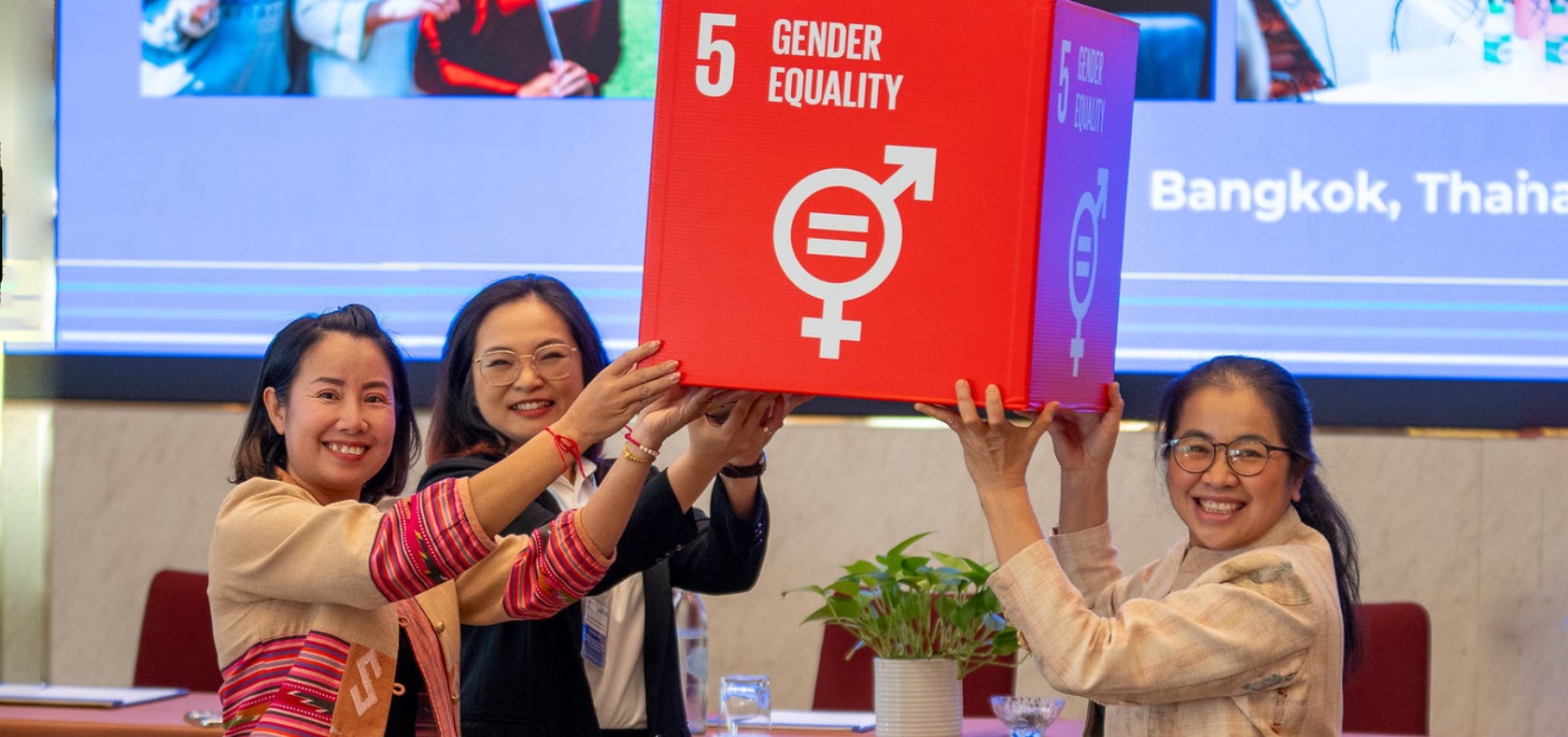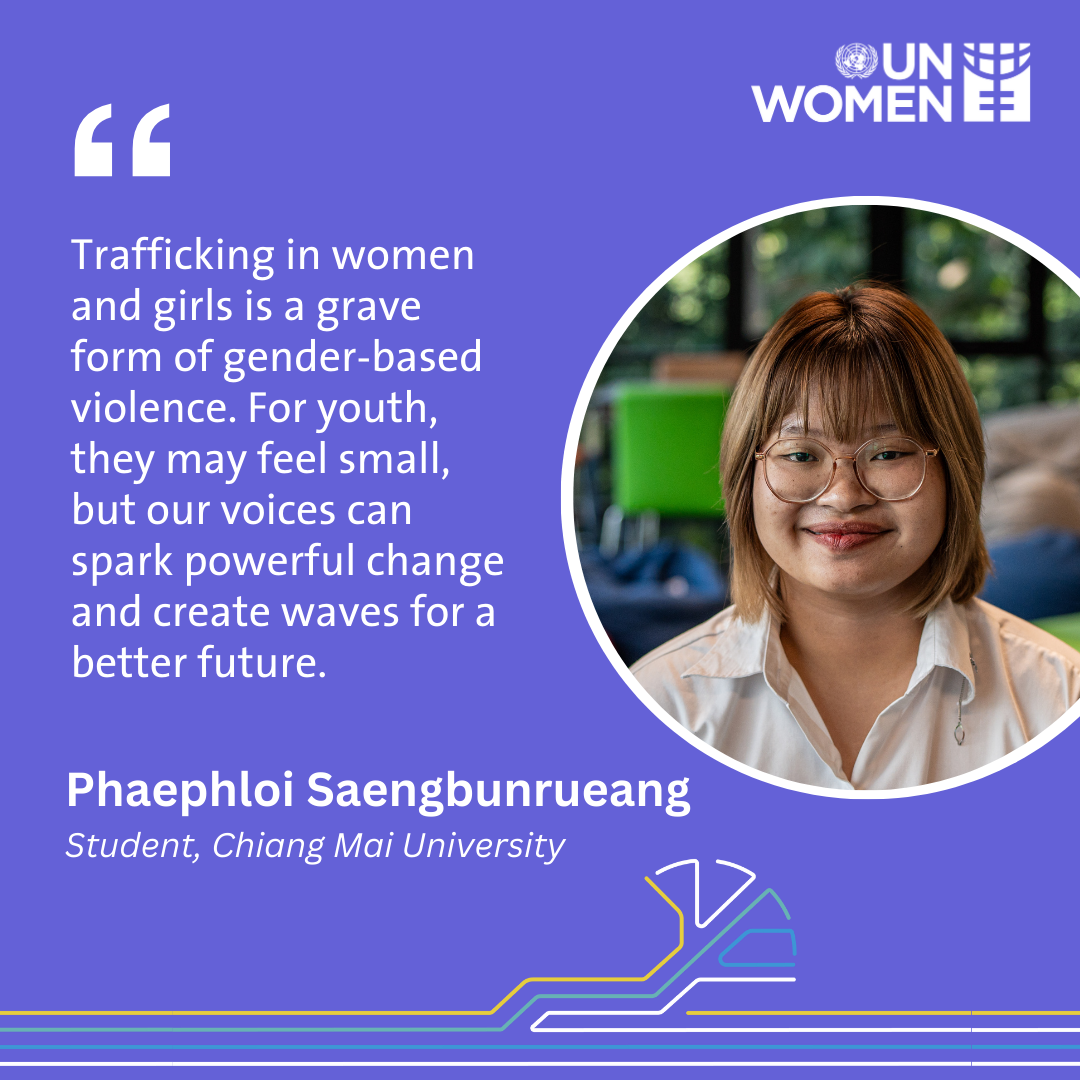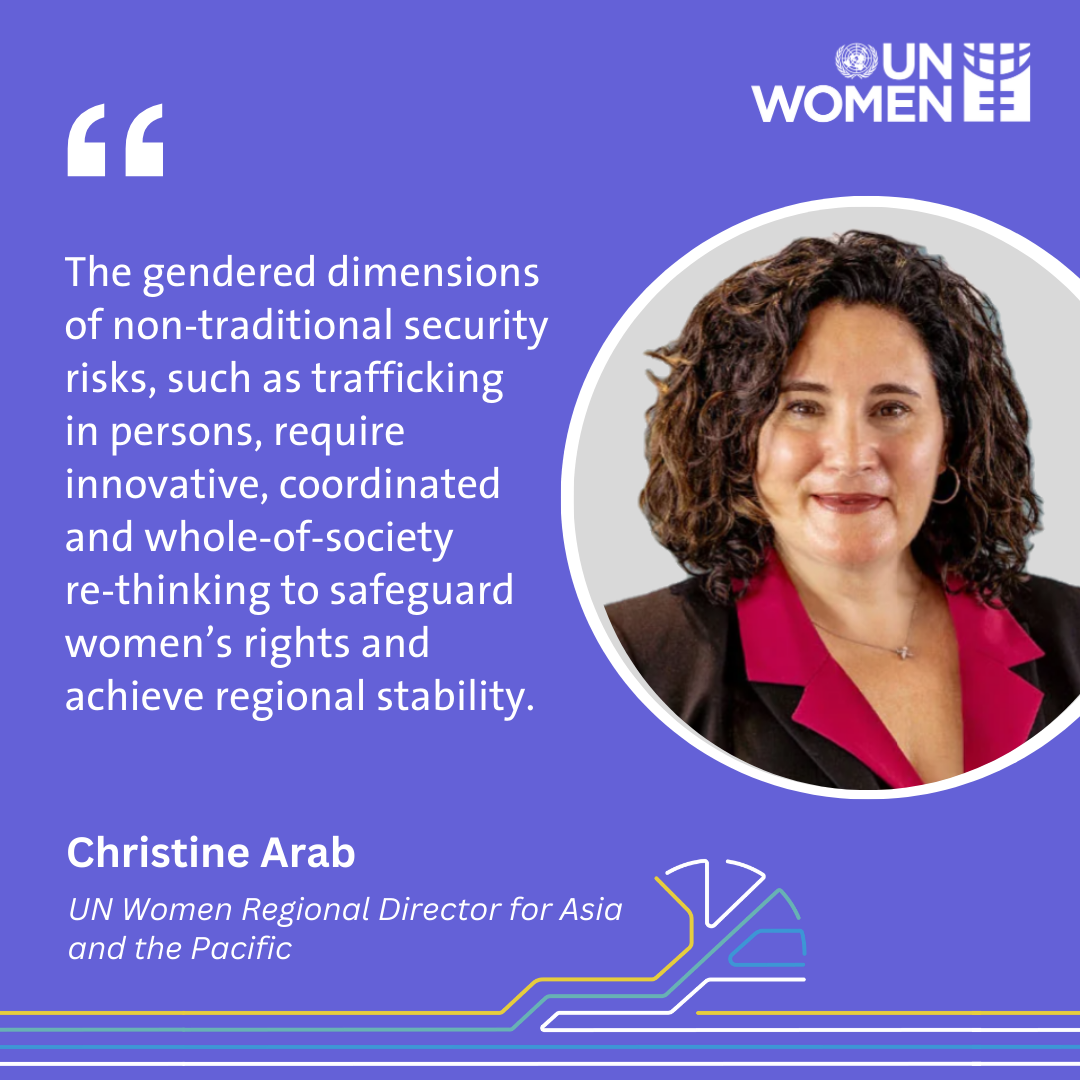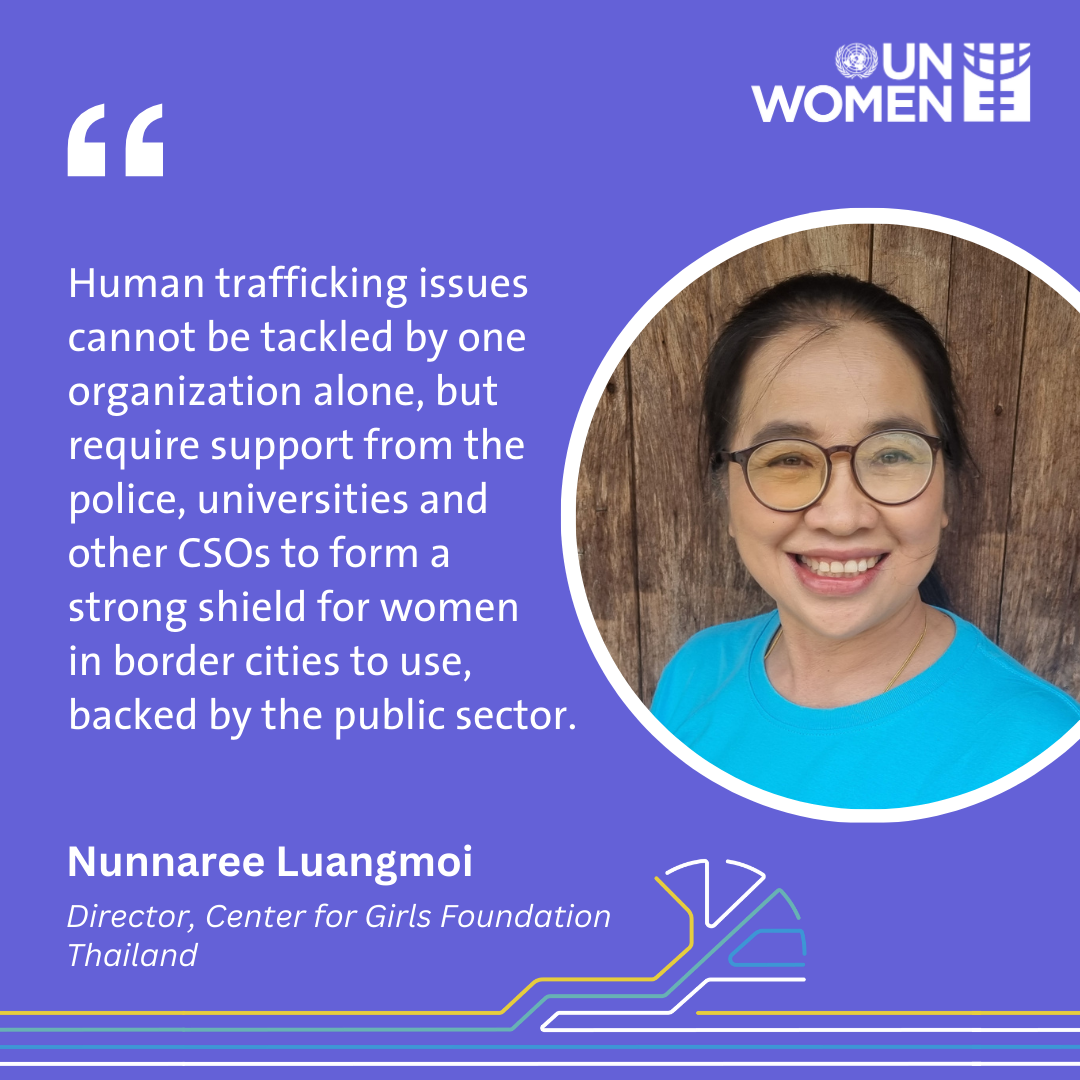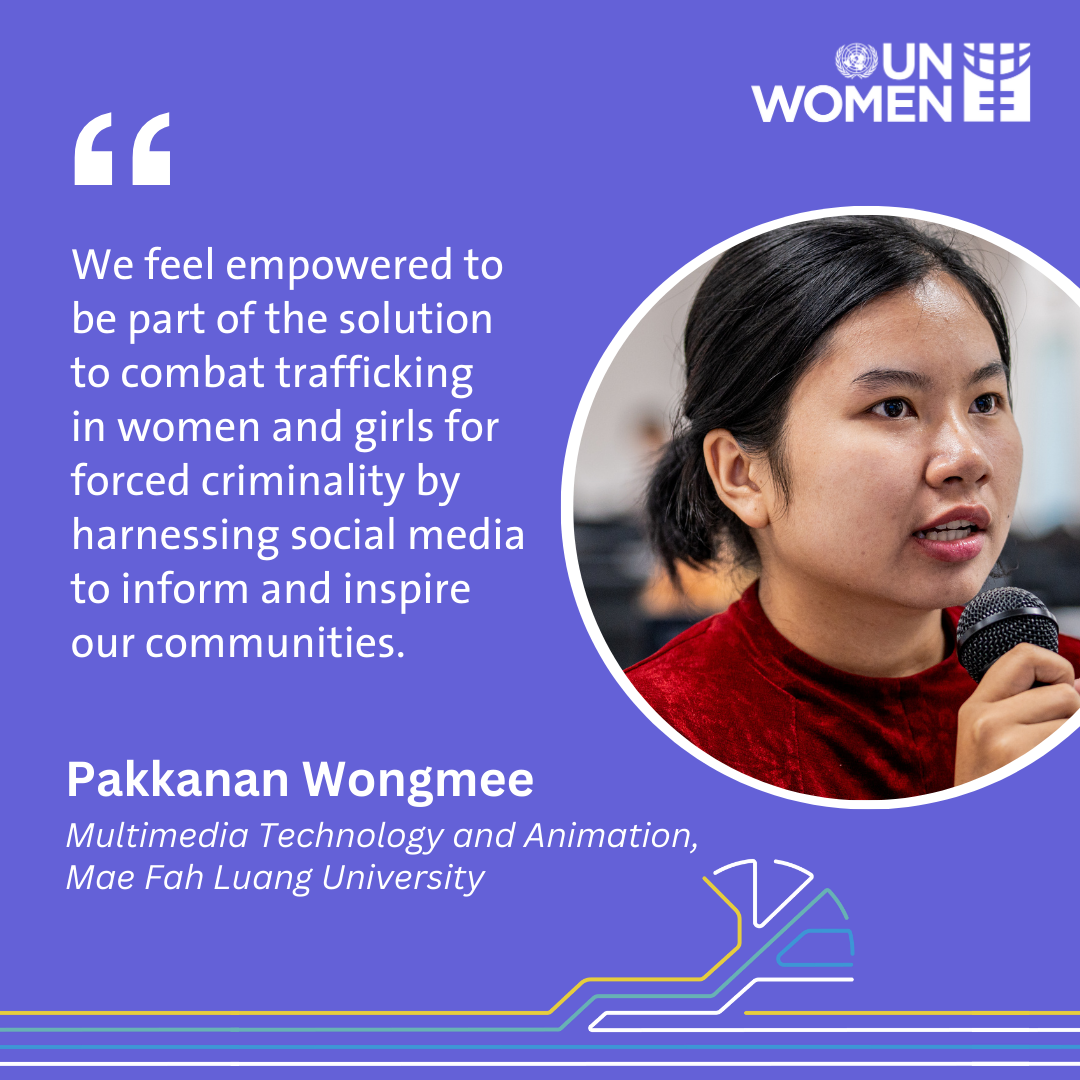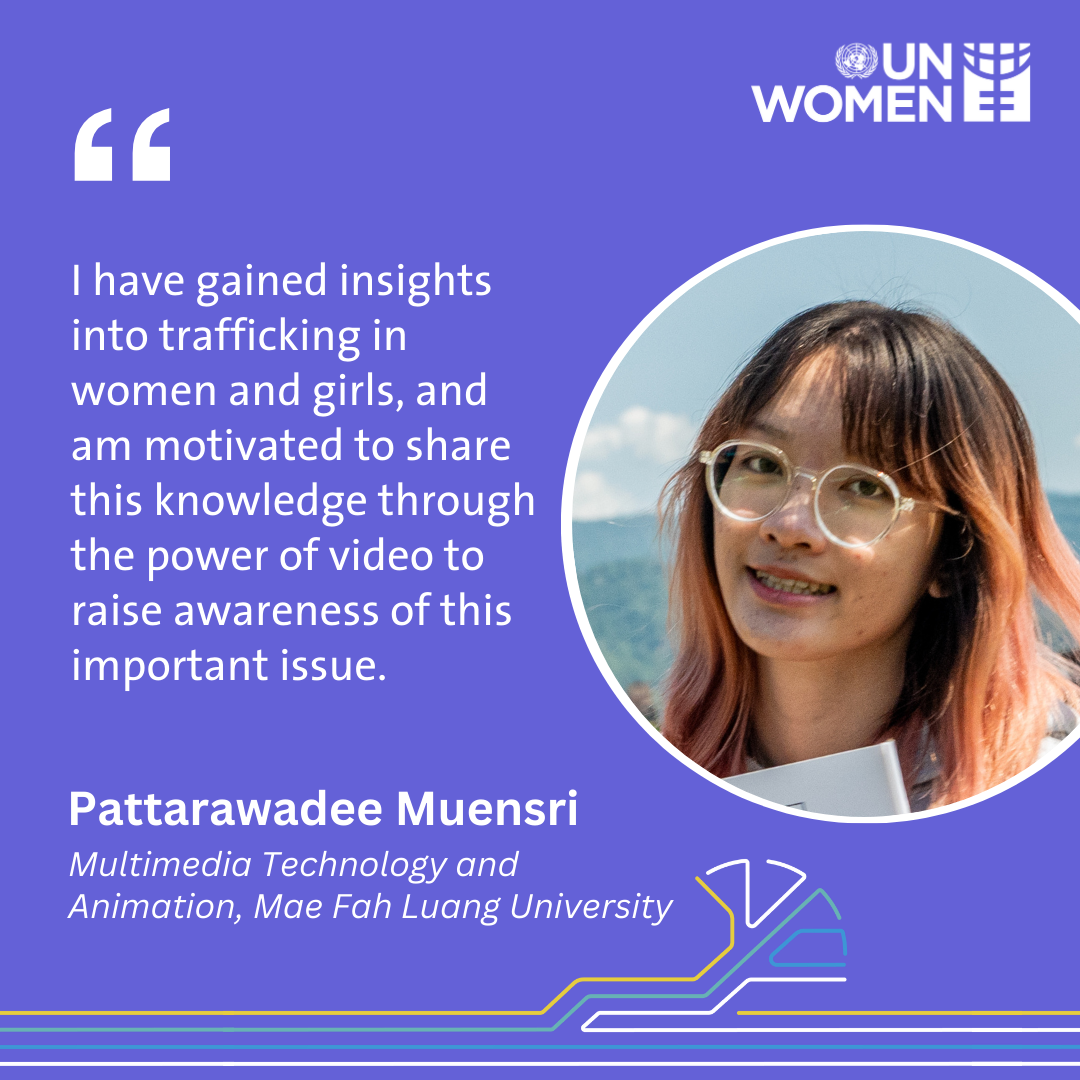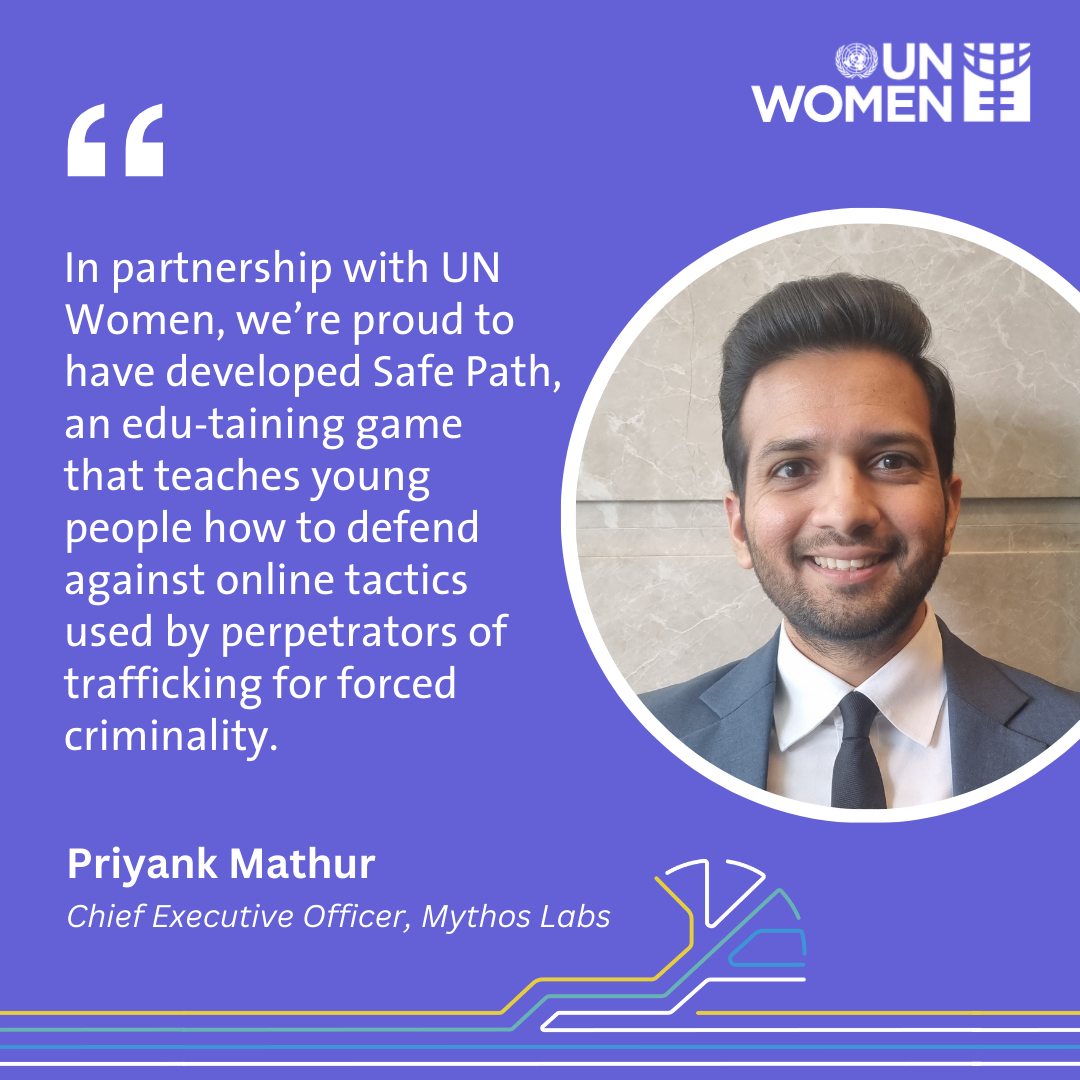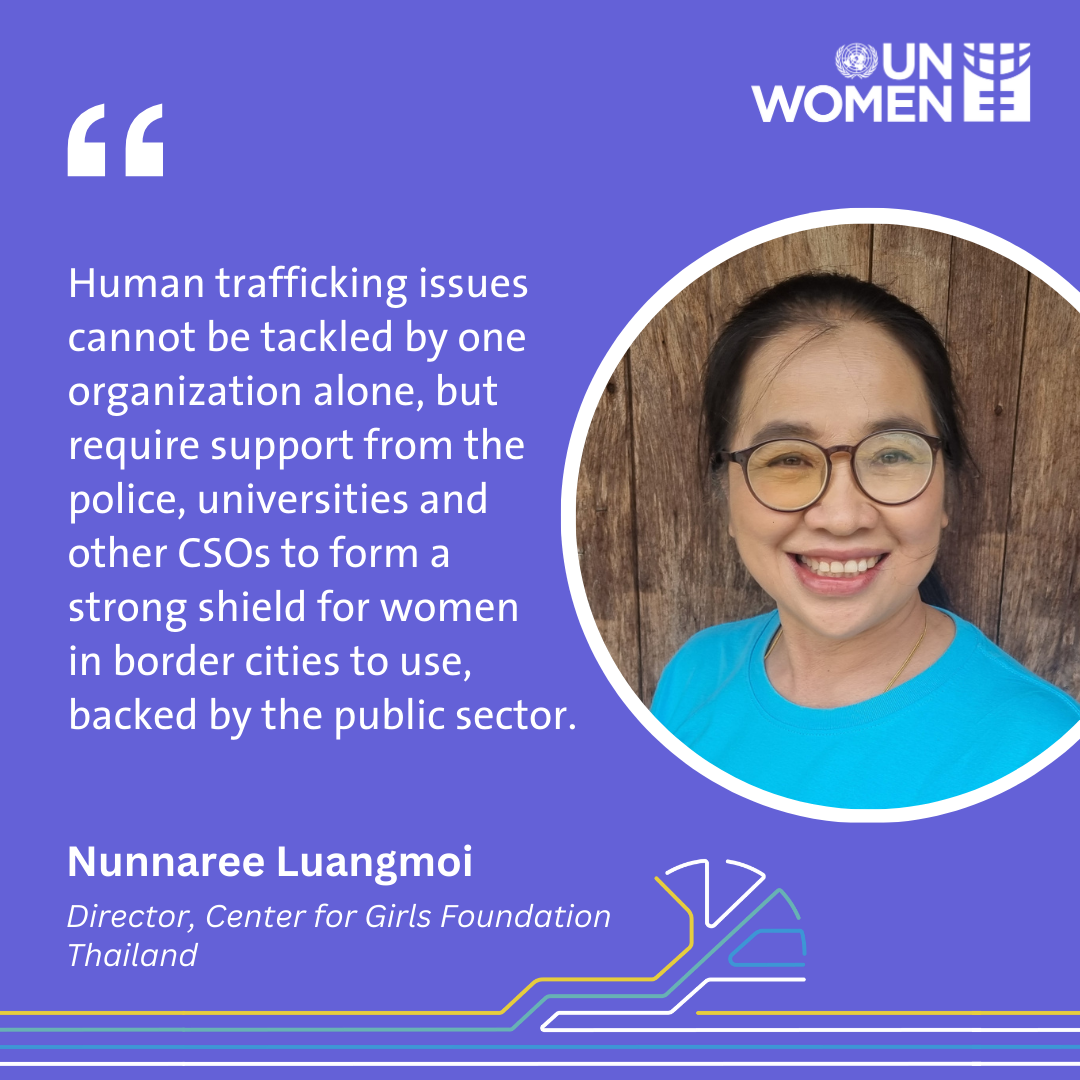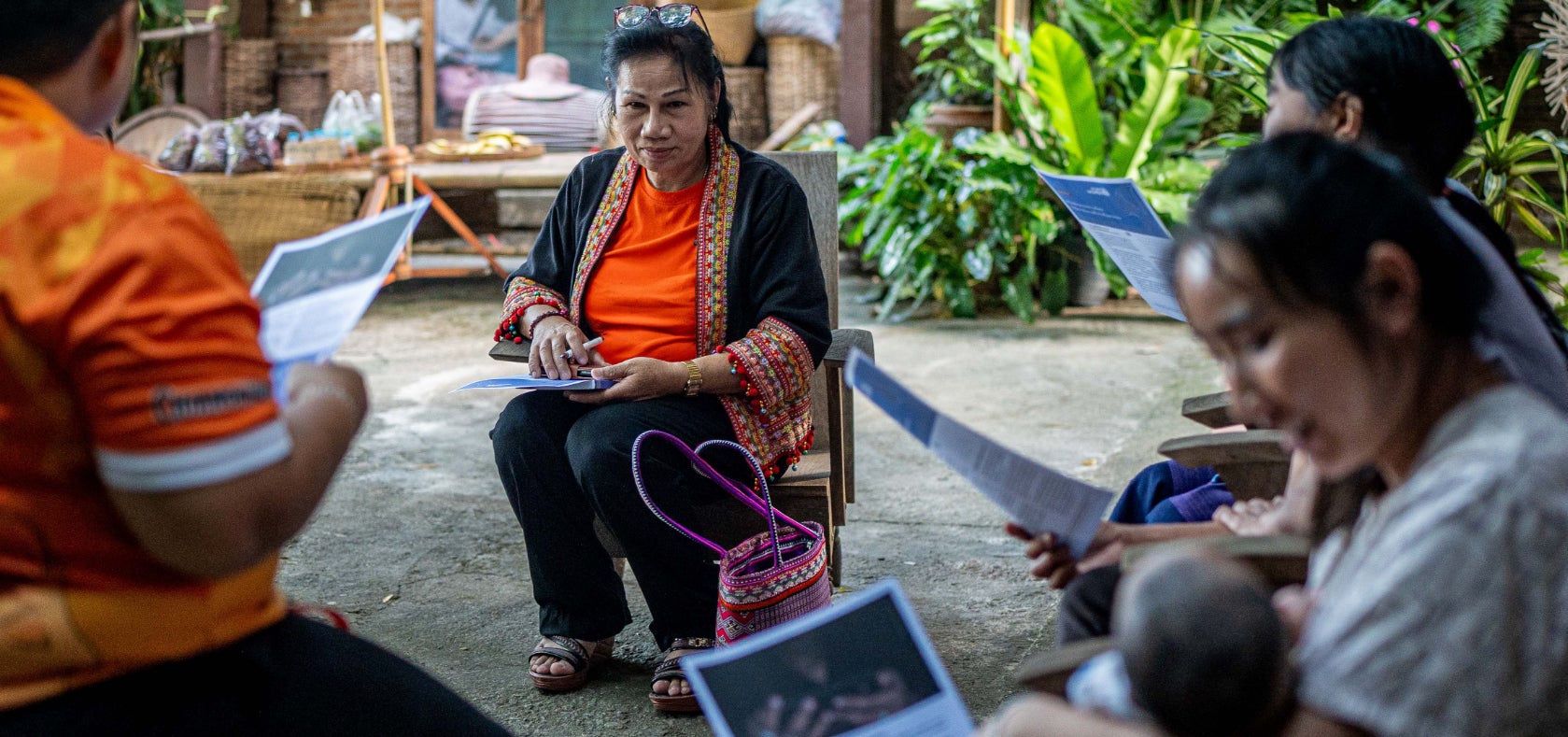
Trafficking in Persons

Featured event:
![[banner]](/sites/default/files/2025-03/tiw_event_graphic_photos_24_mar.png)
| Regional Dialogue |
Gender-Responsive Approaches to Address Trafficking in Persons for Forced Criminality: Applying a Women, Peace and Security Lens
Bangkok, Thailand. Read more
The cross-border peace and security landscape in Asia and the Pacific has evolved dramatically in recent years. Trafficking in persons and other transborder crimes are increasingly becoming critical security concerns for women in the region.
South-East Asia is witnessing a rapid transformation in human trafficking dynamics as criminal operations increasingly shift online. The nature of conflict and its drivers has shifted. The gender dimensions of non-traditional security risks, including trafficking in persons and cyber security, pose new challenges that require innovative responses and solutions.
These emerging security issues in South-East Asia have significant adverse impacts on women’s rights, stability and security across the region. Women and girls are disproportionately impacted by human trafficking. The issue of trafficking in persons does not stand alone, but intersects with other forms of transnational organized crime.
UN Women’s Approach
The engagement and empowerment of women can have a powerful effect in dismantling cross-border peace and security challenges, including trafficking in persons. Survivors of trafficking require protection, assistance and support, access to remedies, and safe return/re-integration into their communities with dignity and respect. Law enforcement agencies must be also prepared and able to adequately provide survivors with support and to work in border communities to mitigate and prevent the surge in trafficking in women and other cyber-enabled harms in at-risk communities.
UN Women’s approach is to leverage the Women, Peace and Security (WPS) agenda to tackle such issues by identifying gaps, women’s specific security and protection needs, and advocating for inclusion.
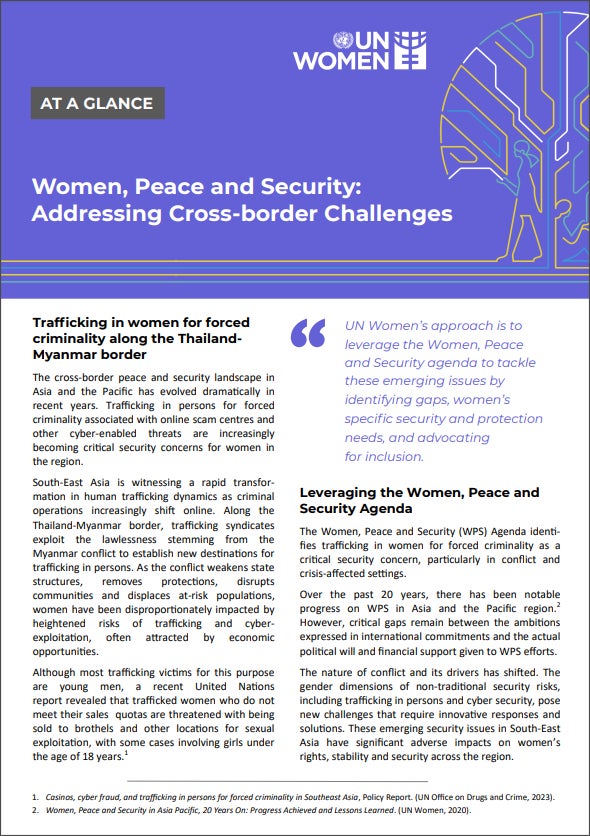
Japan-UN Women partnership
The rise of trafficking in women for forced criminality associated with online scam centres since 2023 has brought new challenges to the region, and is threatening women's security and rights in the digital age.
In response to an alarming rise in trafficking in women for forced criminality along the Thailand-Myanmar border, UN Women, in partnership with the Government of Japan, has been implementing a project to provide immediate support to survivors and mitigate and prevent the surge in trafficking in women and other cyber-enabled harms in this border area.
The project has used the WPS framework to catalyze gender-inclusive responses with the aim of enhancing peace, stability and security along the Thailand-Myanmar border with innovative solutions. To achieve the project objectives, UN Women has been cooperating with governments, women’s rights and civil society organizations, the UN system and other stakeholders.
Key achievements include:
-
418 survivors and household members (including 225 women and girls) receiving immediate, gender-responsive, trauma-informed assistance.

- More than 15,000 youth and community members (including more than 10,600 most at-risk women and girls along the border districts) gaining knowledge on trafficking and cyber-enabled threats.
- More than 36,300 individuals increasing their understanding of trafficking for forced criminality and cyber threats through digital prevention tools.
- 115 stakeholders engaged across sub-national, national, and regional levels to improve coordination.
- Launch of Safe Path in March 2025 - an informative and entertaining gamified module designed as part of the resilience-building efforts targeting youth under the UN Women-Japan initiative.
The project has contributed to efforts under the Regional Framework Towards Peaceful, Inclusive Societies, a UN Women regional initiative that is advancing the WPS agenda and inclusive governance in Asia and the Pacific. For more project information, please contact: [ Click to reveal ]
